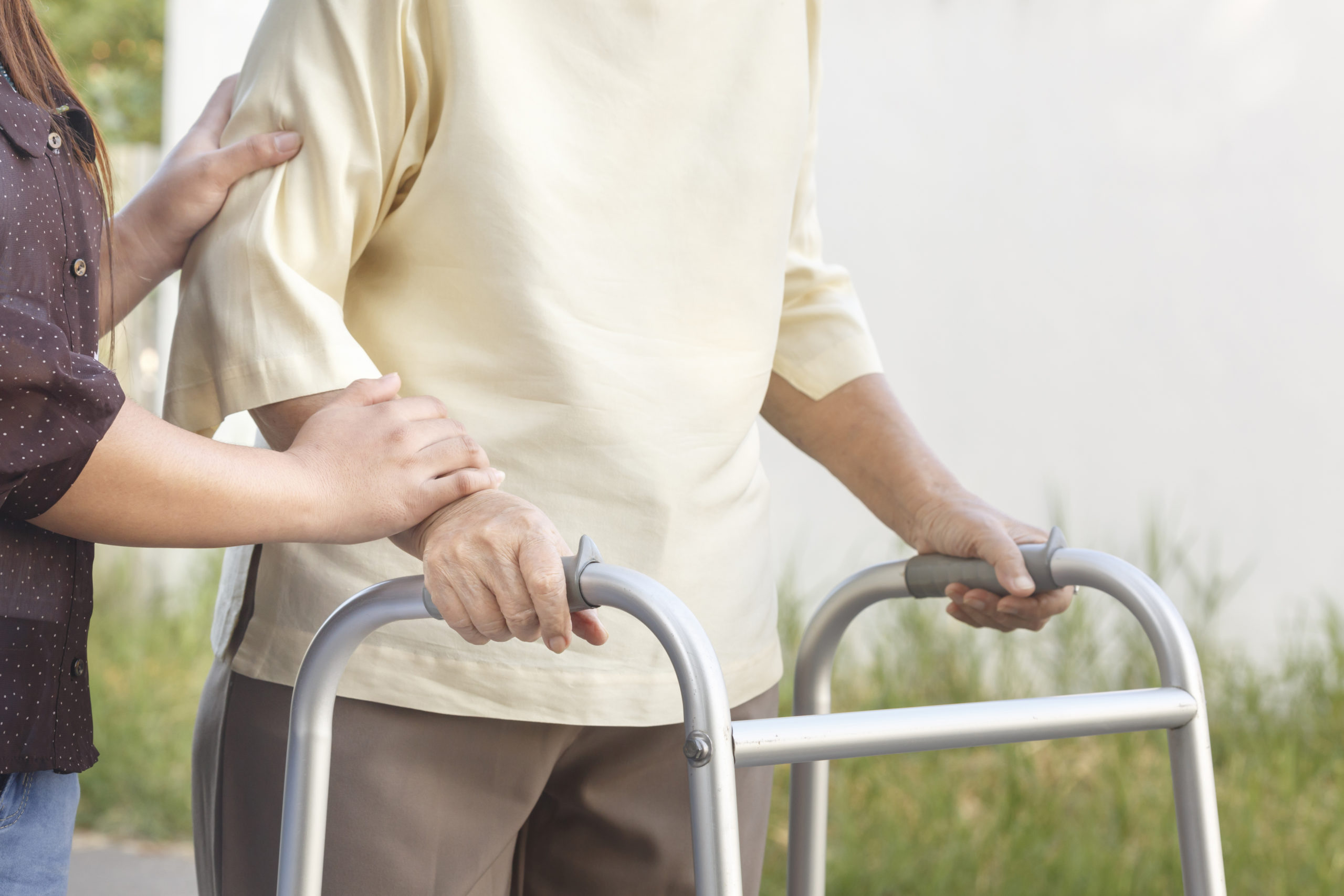4 Min Read
Fall Prevention Tips for Seniors

As you age, falls are a real threat to both your health and independence. Every year, millions of seniors ages 65 and older fall. According to the Centers for Disease Control and Prevention (CDC), more than 1 in 4 older people fall each year, but less than half tell their doctor. This only doubles your chance of falling again.
And, every 20 minutes, an older adult in the U.S. dies from a fall.
These stats are alarming, but falls are not just something that have to happen with age. They can be reduced by following a few fall prevention tips. If you or your loved one is 65 years or older, consider these fall prevention safety measures.
10 Ways to Prevent Falls
1. Talk to your doctor.
Discuss openly with your healthcare provider about your personal risks and fall prevention ideas. Ask them to review your medicines and identify any that may make you sleepy or dizzy and more likely to fall. Ask if you need additional supplements like vitamin D to improve your bone and muscle health, too.
Call your healthcare provider immediately if you feel unsteady, as if the room is spinning, as if you’re moving when you stand still, or lose your balance.
2. Do strength and balance exercises.
Exercising can improve your balance and strength, lowering your chances of falling. At Grand Oaks, for example, our residents practice Tai Chi. This simple form of exercise helps them to feel better and more confident and reduces weakness and chances of falling. Our partners at Johns Hopkins Medicine also recommend simple sit-to-stand and balance exercises. Give them a try here.
3. Get your eyes checked yearly.
When was the last time you or your loved one had an appointment with an eye doctor? If you’re tripping more often or have poor vision or low vision, you may need to update your eyeglasses prescription.
4. Safeguard your home.
The majority of falls happen at home. That’s why it’s important to keep the home and floors clear of clutter, use handrails on all staircases, repair or remove tripping hazards, and make sure the house has plenty of light. Ask a friend or family member to help you, if you need it. Use nonslip mats on kitchens, bathrooms, and porches. Use this home fall prevention checklist for more ideas.
5. Consider your footwear.
Just like your eyesight, you need regular foot care with age, too. In addition to visiting a foot care specialist, always wear rubber-soled and low-heeled shoes that fit properly and support your feet. Do not wear loose-fitting slippers or other shoes that could cause you to trip easily. Likewise, avoid wearing loose clothing that can drag on the ground.
6. Watch out for nasty weather.
Be careful on wet or icy sidewalks, especially walking up and down staircases. Always use handrails and ask a friend, family member, or neighbor to help remove any outdoor obstacles that could cause falls.
7. Limit the amount of alcohol you drink.
According to the Alcohol Addiction Center, alcohol contributes to about 60% of falls. They’ve also seen a 65% increase in high-risk drinking in the elderly. Because seniors often lose dexterity and flexibility, they may already have balance problems made worse by drinking.
8. Live on one level.
For some seniors, stairs are a significant falling hazard. If possible, try to live all on one level or limit the trips you have to take up and down the stairs. If your home is two stories, consider rearranging rooms so the majority of living can occur on the first floor.
9. Consider mobility aids.
Is it time for a cane, walker, wheelchair, or motorized scooter? While some still see stigma and loss of freedom with walkers and other mobility aids, many seniors instead find that using these aids increases their independence and quality of life. Talk to your healthcare provider if you think you need a mobility aid, and make sure it’s properly fitted for the best and easiest use.
10. Take your time.
Many falls can be prevented by moving more carefully. Do not move too quickly from sitting to standing positions, pause after going upstairs if needed, or take a break before using the railing on stairs. Give yourself extra time to do tasks or go places, especially if you know there will be fall hazards like extra stairs.
Important Facts About Falls
- Most falls do not cause injury, but 1 in 5 falls causes a serious injury like broken bones or head injuries.
- More than 95% of hip fractures are the result of falls.
- In addition to injuries, falls can also reduce independence and lingering doubts about what seniors are capable of doing.
- Many seniors who have fallen become afraid of falling again. This may cause them to become less active and weaker.
- Many conditions contribute to falling, including lower body weakness, vitamin D deficiency, difficulties with walking and balance, vision problems, foot pain, use of medicines like tranquilizers or sedatives, and home hazards like uneven steps or clutter.
- Balance disorders like vertigo and Ménière’s disease can make you feel unsteady or like you’re moving or spinning. They can also lead to falls.
- Medicines that lower your blood pressure could make you feel dizzy and increase your chances of falling.
- Not sure if your loved one is at risk for falls? If you notice they are holding onto walls, furniture, or others when walking, or they appear to have difficulty walking or standing up from a chair, it may be time to intervene with fall prevention measures.

0 Comments